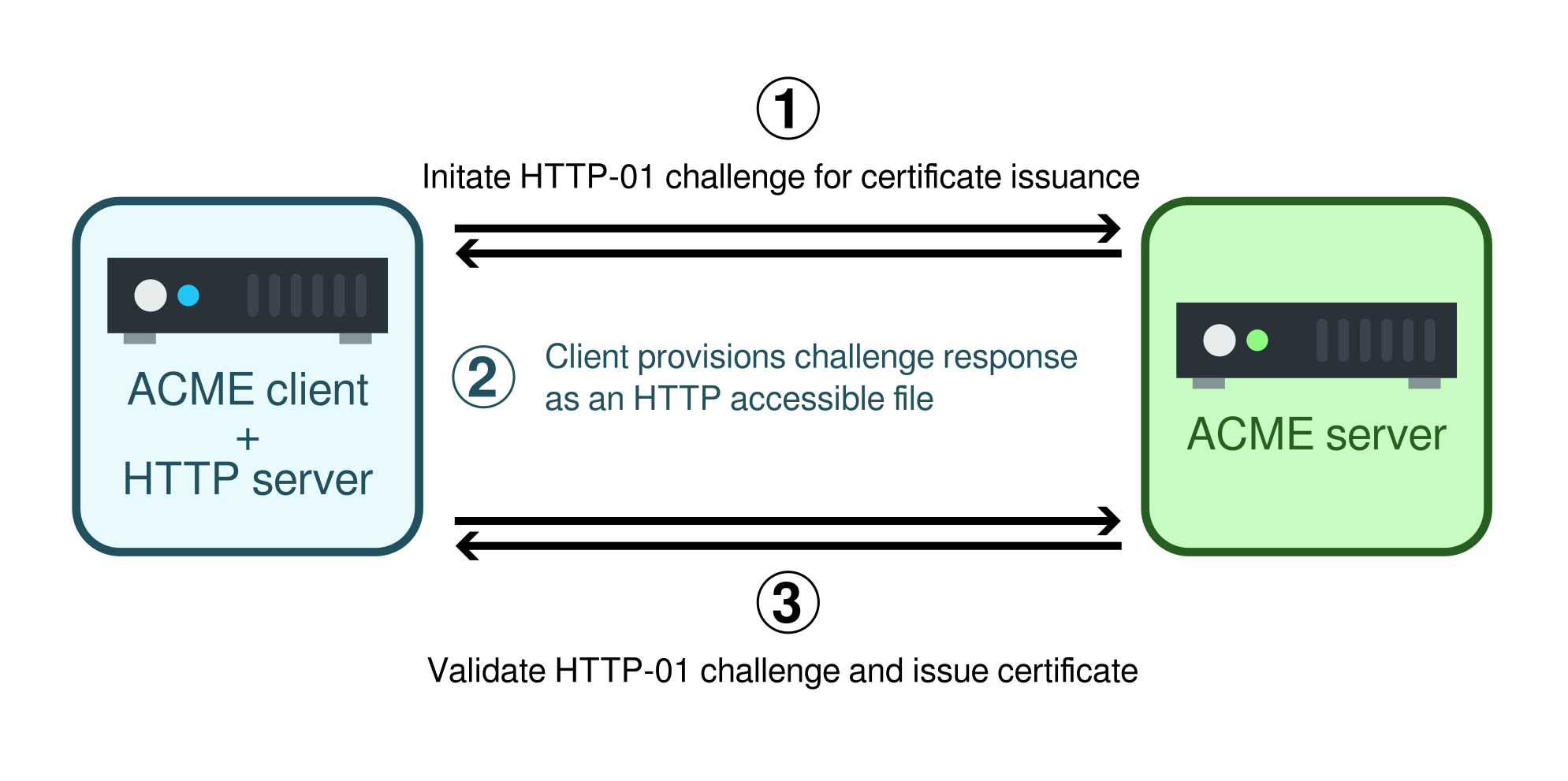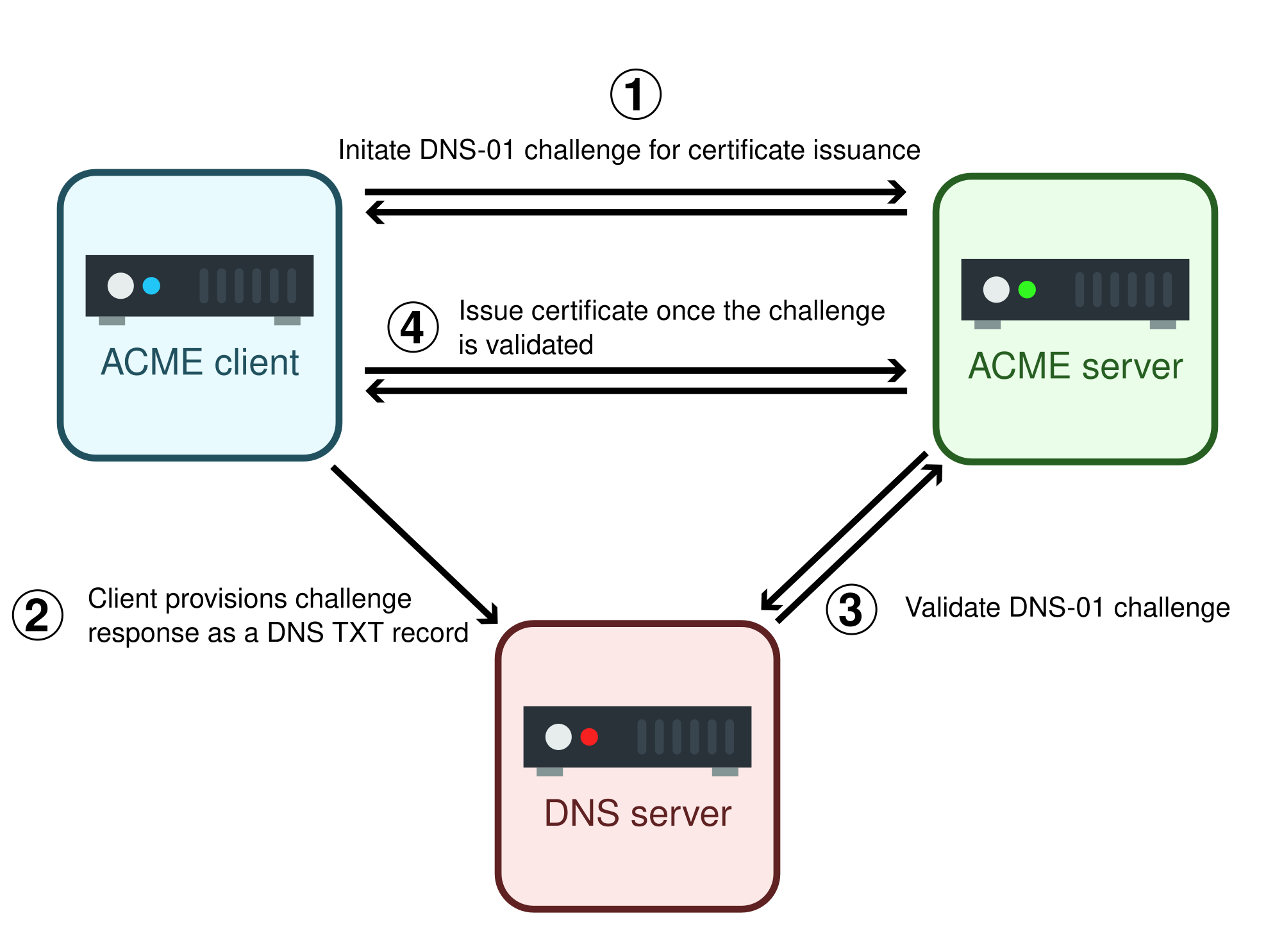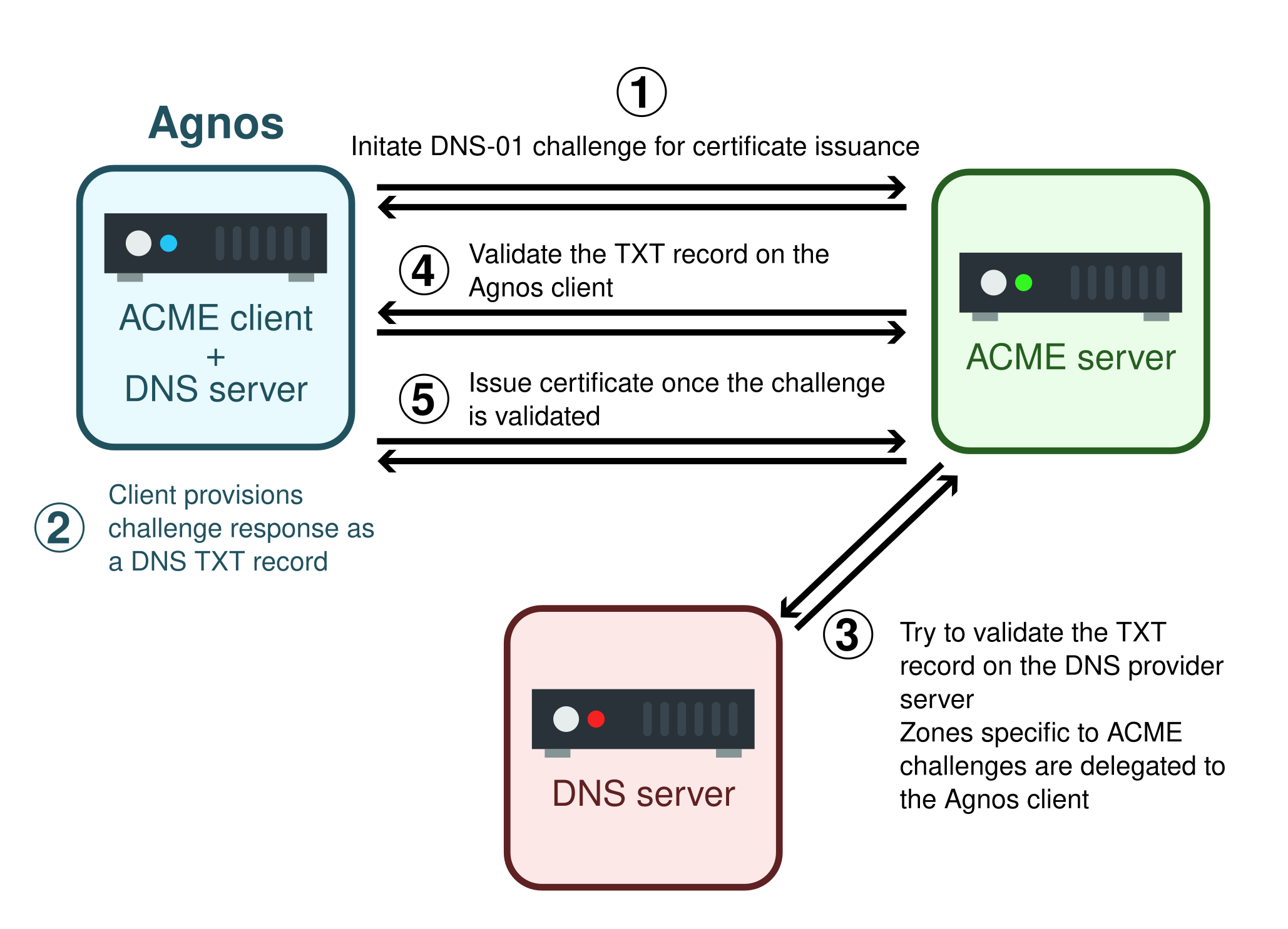Let's Encrypt Wildcard Certificates Made Easy with Agnos
It is with great pleasure that we announce the first beta release of Agnos. A former personal project of our new recruit, Arthur, Agnos development is now hosted at and sponsored by OCamlPro's Rust division, Red Iron.

TL;DR: If you are familiar with ACME providers like Let's Encrypt, DNS-01 and the challenges relating to wildcard certificates, simply know that Agnos touts itself as a single-binary, API-less, provider-agnostic dns-01 client, allowing you to easily obtain wildcard certificates without having to interface with your DNS provider. To do so, it offers a user-friendly configuration and answers Let's Encrypt DNS-01 challenges on its own, bypassing the need for API calls to edit DNS zones. You may want to jump to the last section of this post, or directly join us on Agnos's github.
Agnos was born from the observation that even though wildcard certificates are in many cases more convenient and useful than their fully qualified counterparts, they are not often used in practice. As of today it is not uncommon to see certificates with multiple Subject Alternate Names (SAN) for multiple subdomains, which can become problematic and weaken infrastructure. If some situations indeed require to forego wildcard certificates, this choice is too often still a default one.
At OCamlPro, we believe that technical difficulties should not stand in the way of optimal decision making, and that compromises should only be made in the face of unsolvable challenges. By releasing this first beta of Agnos, we hope that your feedback we'll help us build a tool truly useful to the community and that together, we can open a path towards seamless wildcard certificate issuance – tossing away issues and pain-points previously encountered as a thing of the past.
This blog post describes the different ACME challenges, why DNS providers API have so far been hindering DNS-01 adoption, and how Agnos solves this issue. If you are already curious and want to run some code, let's meet on Agnos's github
Let's encrypt's mechanism and ACME challenges
The Automatic Certificate Management Environment (ACME) is the protocol behind automated certificate authority services like Let's Encrypt. At its core, this protocol requires the client asking for a certificate to provide evidence that they control a resource by having said resource display some authority-determined token.
The easiest way to do so is to serve a file on a web-server. For example serving a file containing the token at my-domain.example would prove that I control the web-server that the fully qualified domain name my-domain.example is pointing to. This, under normal circumstances proves that I somewhat control this fully qualified domain. This process is illustrated below.
The ACME client initiates the certificate issuance process and is challenged to serve the token via HTTP at the domain address. The ACME client and HTTP server can be and often are on the same machine. The token can be quickly provisioned, and the ACME client can ask the ACME server to validate the challenge and issue the certificate.

However, demonstrating that one controls an HTTP server pointed to by my-domain.example is not deemed enough by Let's Encrypt to demonstrate full control of the my-domain.example domain and all its subdomains. Hence, the user cannot be issued a wildcard certificate through this method.
To obtain a wildcard certificate, one must rely on the DNS-01 type of challenge, illustrated below. The ACME client initiates the certificate issuance process and is challenged to serve the token via a DNS TXT record. Because DNS management is often delegated to a DNS provider, the DNS server is rarely on the same machine, and the token must be provisioned via a call to the DNS provider API, if there is any. Moreover, DNS providers virtually always use multiple servers, and the new record must be propagated to all of them. The ACME client must then wait and check for the propagation to be finished before asking the ACME server to validate the challenge and issue the certificate.

The pros and cons of each of these two challenge type are summarized by Let's Encrypt's documentation as follow:
HTTP-01
Pros
- It’s easy to automate without extra knowledge about a domain’s configuration.
- It allows hosting providers to issue certificates for domains CNAMEd to them.
- It works with off-the-shelf web servers.
Cons
- It doesn’t work if your ISP blocks port 80 (this is rare, but some residential ISPs do this).
- Let’s Encrypt doesn’t let you use this challenge to issue wildcard certificates.
- If you have multiple web servers, you have to make sure the file is available on all of them.
DNS-01
Pros
- You can use this challenge to issue certificates containing wildcard domain names.
- It works well even if you have multiple web servers.
Cons
- Keeping API credentials on your web server is risky.
- Your DNS provider might not offer an API.
- Your DNS API may not provide information on propagation times.
Agnos as the best of both worlds
By using NS records to delegate the DNS-01 challenge to Agnos itself, we can virtually remove all of DNS-01 cons. Indeed by serving its own DNS answers, Agnos:
- Nullifies the need for API and API credentials
- Nullifies all concerns regarding propagation times
In more details, Agnos proceeds as follows (and as illustrated below). Before any ACME transaction takes place (and only once), the ACME client user manually updates their DNS zone to delegate ACME specific subdomains to Agnos. Note that the rest of DNS functionality is still assumed by the DNS provider. To carry out the ACME transaction, the ACME client initiates the certificate issuance process and is challenged to serve the token via a DNS TXT record. Agnos does so using its own DNS functionality (leveraging Trust-dns). The ACME client can immediately ask the ACME server for validation. The ACME server asks the DNS provider for the TXT record and is replied to that the ACME specific subdomain is delegated to Agnos. The ACME server then asks Agnos-as-a-DNS-server for the TXT record which Agnos provides. Finally the certificate is issued and stored by Agnos on the client machine.

Taking Agnos for a ride
In conclusion, we hope that by switching to Agnos, or more generally to provider-agnostic DNS-01 challenge solving, individuals and organizations will benefit from the full power of DNS-01 and wildcard certificates, without having to take API-related concerns into account when choosing their DNS provider.
If this post has piqued your interest and you want to help us develop Agnos further by trying the beta out, let's meet on our github. We would very much appreciate any feedback and bug reports, so we tried our best to streamline and well document the installation process to facilitate new users. On ArchLinux for example, getting started can be as easy as:
Adding two records to your DNS zone using your provider web GUI:
agnos-ns.doma.in A 1.2.3.4
_acme-challenge.doma.in NS agnos-ns.doma.in
and running on your server
# Install the agnos binary
yay -S agnos
# Allow agnos to bind the priviledge 53 port
sudo setcap 'cap_net_bind_service=+ep' /usr/bin/agnos
# Download the example configuration file
curl 'https://raw.githubusercontent.com/krtab/agnos/v.0.1.0-beta.1/config_example.toml' > agnos_config.toml
# Edit it to suit your need
vim agnos_config.toml
# Launch agnos 🚀
agnos agnos_config.toml
Until then, happy hacking!
About OCamlPro:
OCamlPro is a R&D lab founded in 2011, with the mission to help industrial users benefit from experts with a state-of-the-art knowledge of programming languages theory and practice.
- We provide audit, support, custom developer tools and training for both the most modern languages, such as Rust, Wasm and OCaml, and for legacy languages, such as COBOL or even home-made domain-specific languages;
- We design, create and implement software with great added-value for our clients. High complexity is not a problem for our PhD-level experts. For example, we helped the French Income Tax Administration re-adapt and improve their internally kept M language, we designed a DSL to model and express revenue streams in the Cinema Industry, codename Niagara, and we also developed the prototype of the Tezos proof-of-stake blockchain from 2014 to 2018.
- We have a long history of creating open-source projects, such as the Opam package manager, the LearnOCaml web platform, and contributing to other ones, such as the Flambda optimizing compiler, or the GnuCOBOL compiler.
- We are also experts of Formal Methods, developing tools such as our SMT Solver Alt-Ergo (check our Alt-Ergo Users' Club) and using them to prove safety or security properties of programs.
Please reach out, we'll be delighted to discuss your challenges: contact@ocamlpro.com or book a quick discussion.
Most Recent Articles
2024
- opam 2.3.0 release!
- Optimisation de Geneweb, 1er logiciel français de Généalogie depuis près de 30 ans
- Alt-Ergo 2.6 is Out!
- Flambda2 Ep. 3: Speculative Inlining
- opam 2.2.0 release!
- Flambda2 Ep. 2: Loopifying Tail-Recursive Functions
- Fixing and Optimizing the GnuCOBOL Preprocessor
- OCaml Backtraces on Uncaught Exceptions
- Opam 102: Pinning Packages
- Flambda2 Ep. 1: Foundational Design Decisions
- Behind the Scenes of the OCaml Optimising Compiler Flambda2: Introduction and Roadmap
- Lean 4: When Sound Programs become a Choice
- Opam 101: The First Steps
2023
- Maturing Learn-OCaml to version 1.0: Gateway to the OCaml World
- The latest release of Alt-Ergo version 2.5.1 is out, with improved SMT-LIB and bitvector support!
- 2022 at OCamlPro
- Autofonce, GNU Autotests Revisited
- Sub-single-instruction Peano to machine integer conversion
- Statically guaranteeing security properties on Java bytecode: Paper presentation at VMCAI 23
- Release of ocplib-simplex, version 0.5